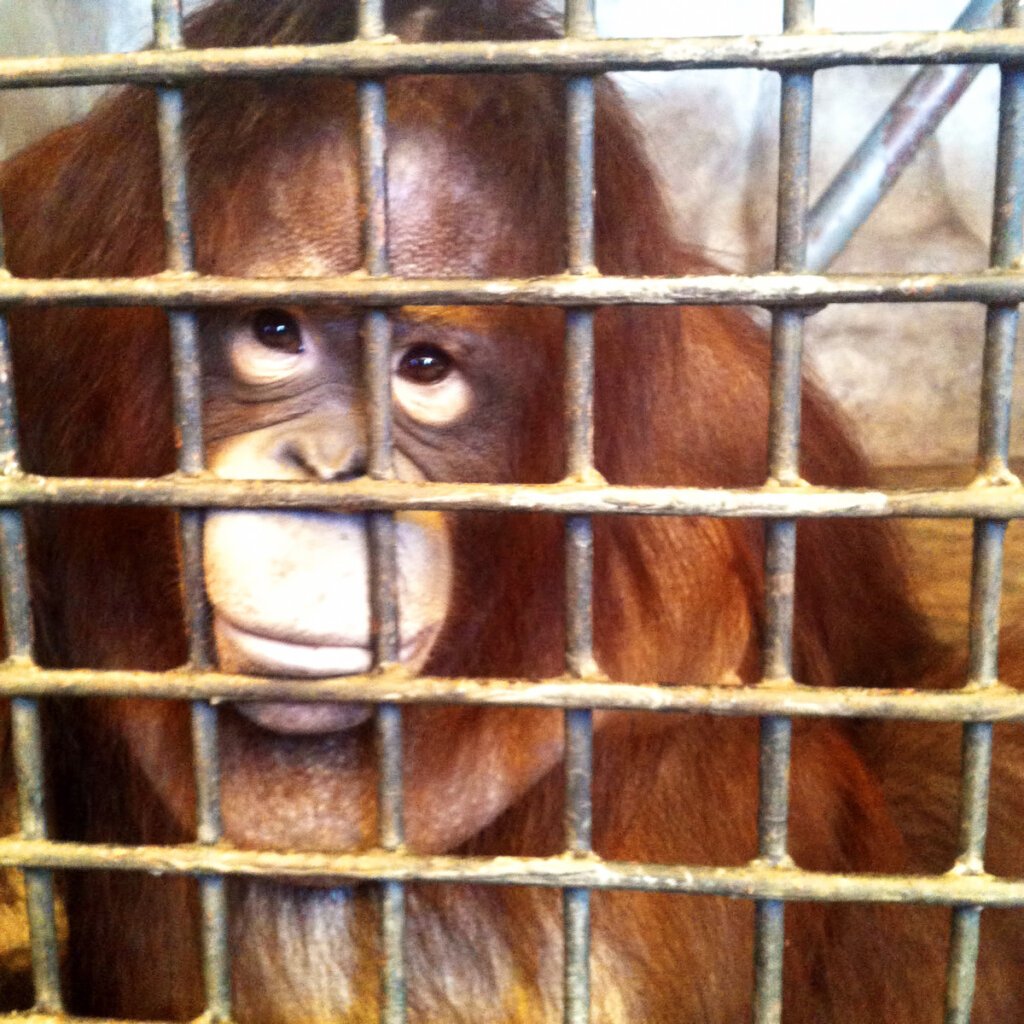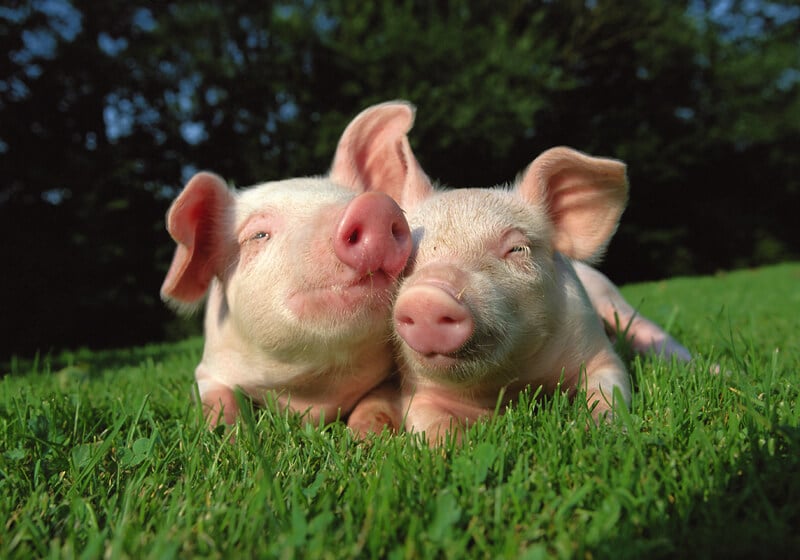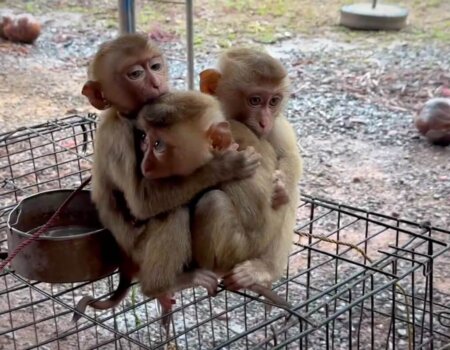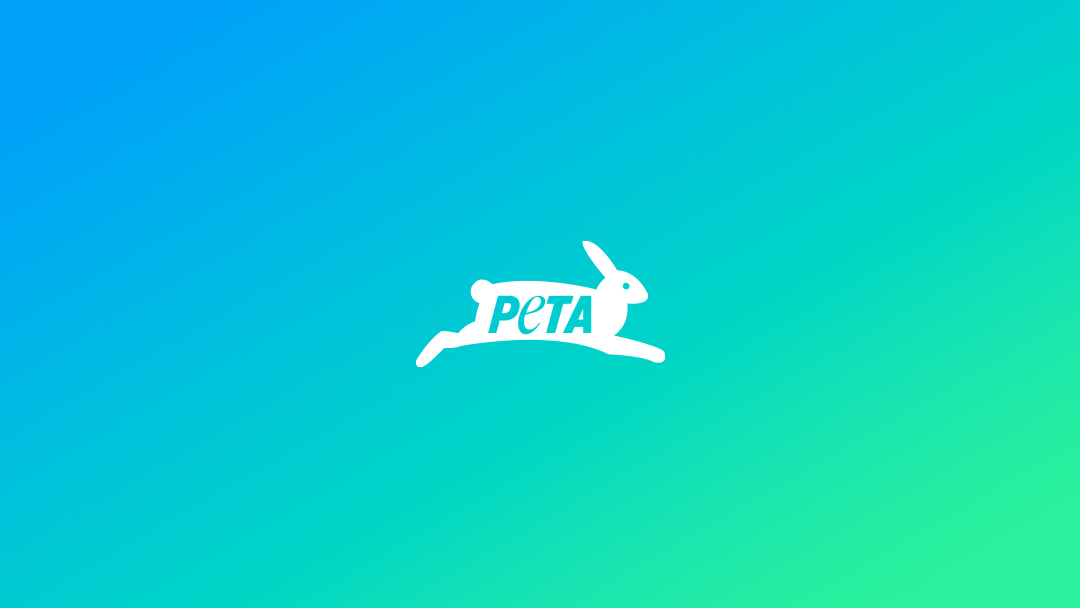
PETA Asks Children’s Author for ‘Honest’ Addition to Farm Book Collection
Author Rebecca Johnson’s titles about farmed animals in her Steve Parish Story Book collection are supposed to be based on the “52 virtues, including caring, honesty, forgiveness and unity”. However, because of a number of glaring factual omissions, we sent the author some suggested edits to make the books more accurate and honest and tell the whole story of life for animals farmed for, among other things, their flesh or fleece.
For example, in Elliot the Piglet, some images of the cramped farrowing crates in which most mother pigs languish after giving birth could have been included. Of course, for accuracy, at the end of the story, Elliot should have been prodded onto an abattoir kill floor, thrashed around inside a gas chamber, and been dismembered.
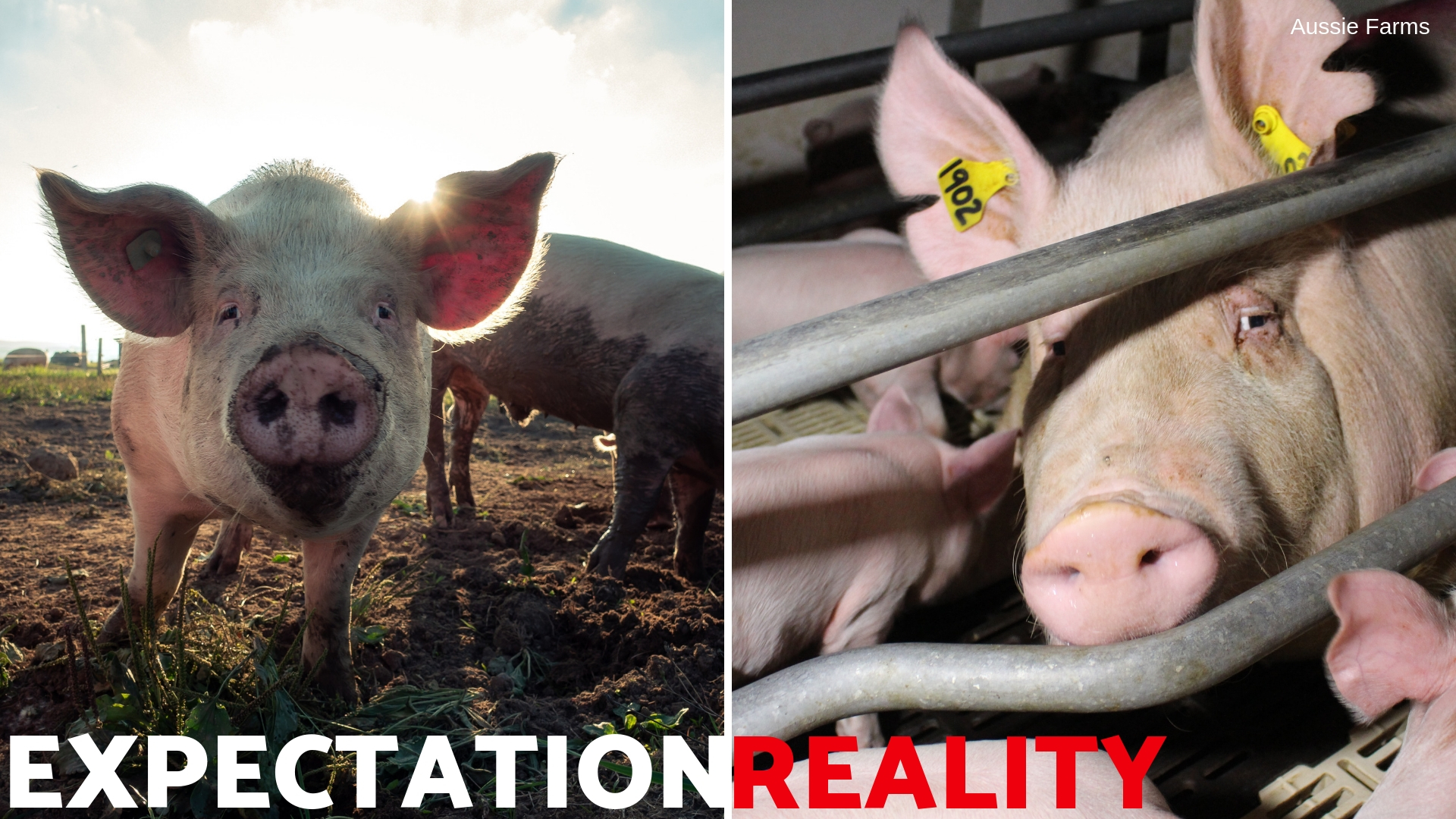
Clover the cow’s story could have begun a little earlier than her pregnancy and depicted her confinement to a “cattle crush” while being forcibly impregnated via artificial insemination. At the end of her story, she could have attempted to flee from the abattoir as she smelled the blood of the herd members being killed before her – but inevitably, her throat would have been slit, too.
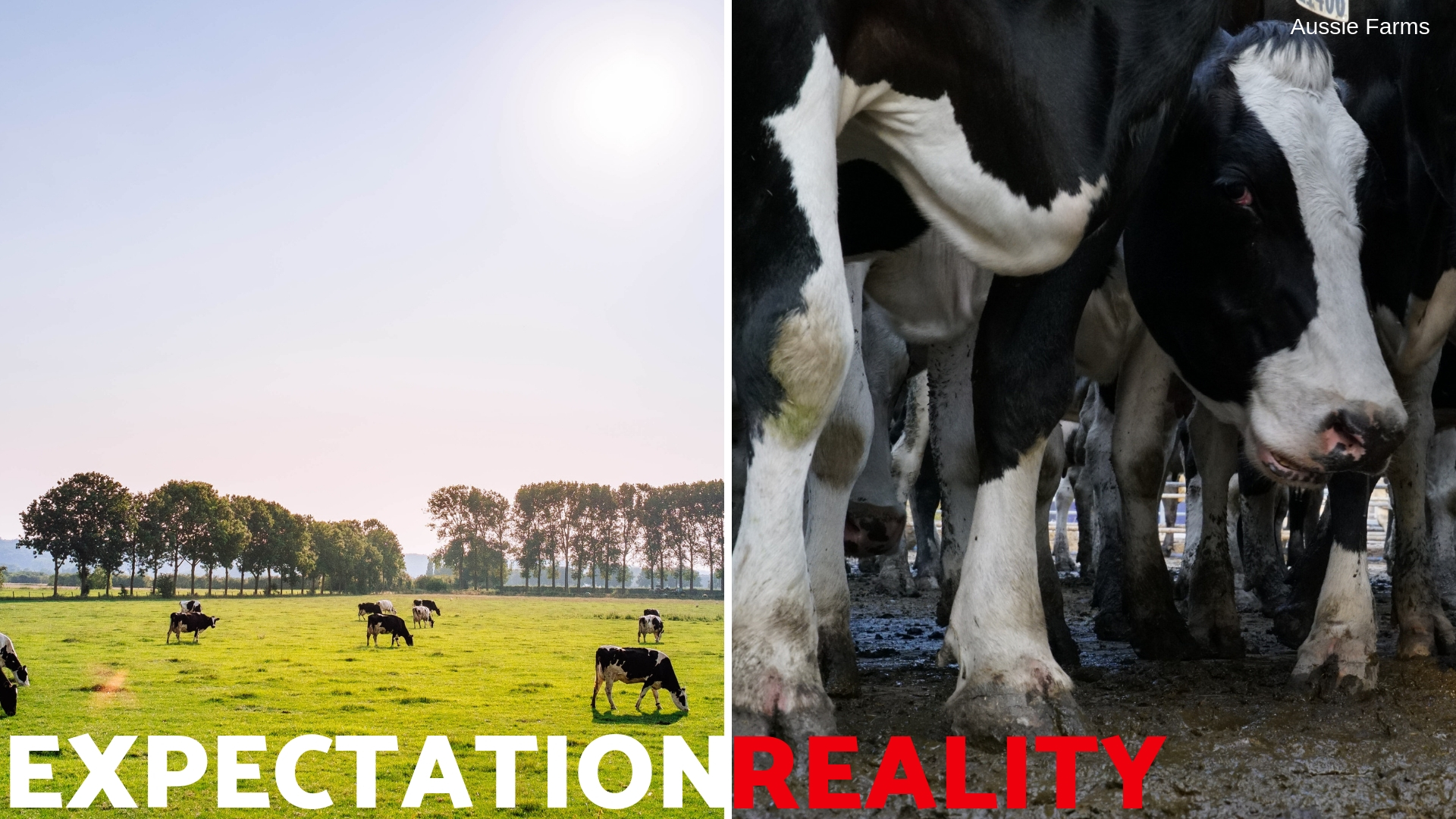
Neville the sheep’s tale could have begun while he’s being restrained by the legs, screaming in pain and fear as his tail is cut off and swaths of skin are carved from his sensitive backside. Later, he could have been shown as workers beat his face with clippers and carelessly slashed his body during shearing. His gaping wounds would have been hastily sewn up without pain relief.
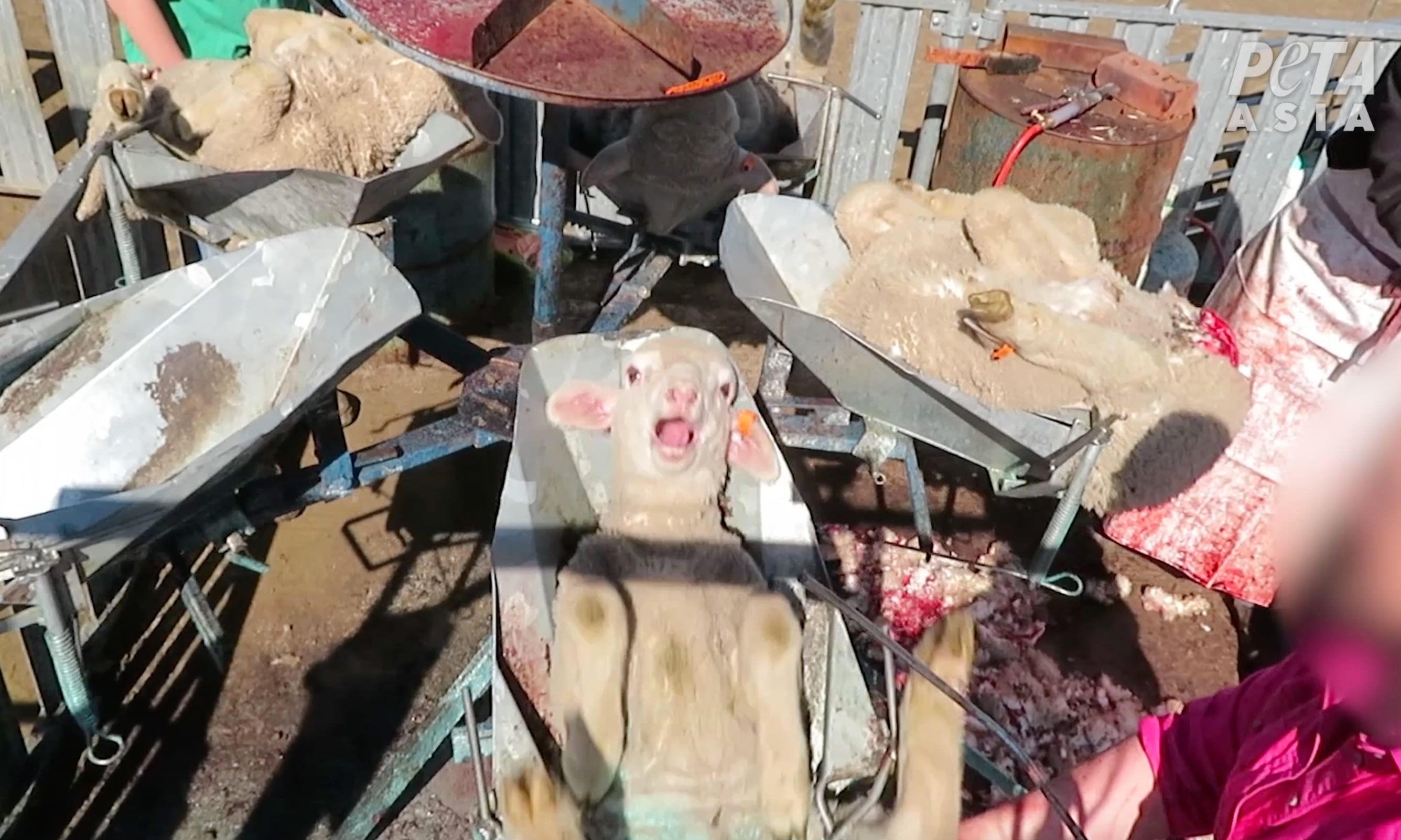
No matter the conditions in which animals are farmed, they all have an interest in living and thriving, just as humans do, and – as portrayed in these books – they all have unique personalities. Yet they’re subjected to abuse, confinement in terrible circumstances, and a terrifying early death at the abattoir.
Of course, the full story of farmed animals’ miserable lives and violent deaths isn’t one people typically want to tell children, but rather than presenting kids with fallacies implying that these animals are better off because of the humans who use their bodies for profit, we should be striving to end these injustices.
It’s important for children to learn to respect animals, not to see them merely as “commodities” to be used and abused. To that end, we hope the storylines in Ms Johnson’s future books will teach children that animals are not ours to use in any way.
Help Animals in 2025: Renew Your PETA Membership!
